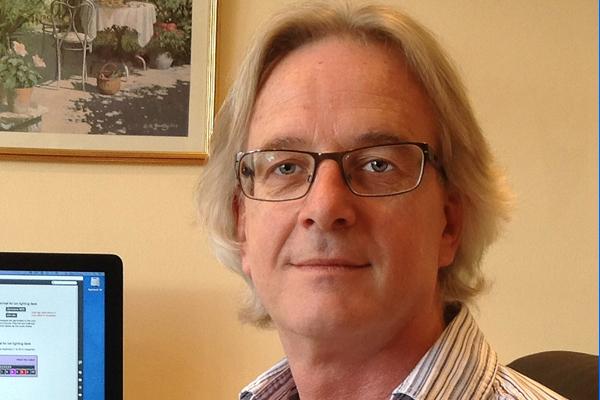 Image
Image
Music-making for the deaf
London Nov 13 (IBNS) A Birmingham (UK) researcher is exploring new ways to enhance the experience of deaf musicians with new visual and touch techniques.
Richard Burn – currently studying a PhD in Music Technology at Birmingham City University’s Integra Lab – hopes his research will give deaf people a greater opportunity to express themselves and help enable them to create new works for both deaf and hearing audiences to enjoy.
Deaf musicians tend to favour acoustic instruments – quite often percussion –which produce a distinct physical feedback from vibration generated by the instrument, alongside more subtle visual clues. However, using electronic instruments, they often find it more difficult to resolve some of the characteristics of sound, such as pitch and harmonics.
Richard proposes the creation of a new musical interface that will combine haptic and visual forms of feedback to create a more inclusive experience for deaf people.
Alongside vibrations, visual indictors will appear on a digital display that collectively form a ‘sonic fingerprint’ when an instrument is played, highlighting different components that make up the sound.
Richard Burn, PhD candidate, Birmingham City University said: “Traditional waveform representations are unable to truly describe what music actually sounds like. There are much more subtle characteristics of sound that may be better represented visually, for example, by using simple shapes and symbols to describe harmonic content."
“My proposed system will hopefully give deaf players of electronic instruments the same sort of experience as that enjoyed by deaf players of acoustic instruments," Burn said.
Having spent 35 years in the Royal Air Force, Richard decided to pursue his long-standing interest in music technology. While studying for an MSc, he did some work on visual feedback – using light and colour to enhance musical performance. He decided to study this in more depth for his PhD, but with a particular focus on the needs of deaf musicians
Richard added: “I will be conducting a range of interviews and surveys in order to understand what type of feedback would be useful to deaf musicians. The second stage will be developing systems that deliver those feedback loops and then the third phase will be testing the systems that I’ve developed to see whether they fit the project’s initial aims.”
Top Headlines
-
News
CSR in the Crossfire: Professor and practitioners debate over ethics in India Inc. at Kolkata's MCHD talk
October 24, 2025
-
News
Jashanpreet Singh Case: California under fire for licensing undocumented truck driver
October 24, 2025
-
News
India upgrades Technical Mission in Kabul to Embassy, days after Muttaqi's visit to New Delhi
October 22, 2025
-
News
Pakistan, Afghanistan agree to 48-hour ceasefire after deadly border clashes
October 15, 2025
-
News
Afghan Taliban, Pakistan exchange gunfire, dozens killed
October 15, 2025
-
News
Trump hails Netanyahu in Israel after hostage release, declares historic dawn of a new Middle East
October 13, 2025
-
News
Historic dawn of a new Middle East: Donald Trump addresses Israeli Parliament
October 13, 2025
-
News
Shah Rukh Khan receives maiden National Award from President Droupadi Murmu
September 23, 2025
-
News
Kolkata: Ahiritola Yubak Brinda invites Auram to make jewellery for Ma Durga and her family
September 20, 2025
-
News
Israel-US alliance 'never been stronger', Netanyahu says as State Secretary Rubio visit for talks
September 15, 2025





